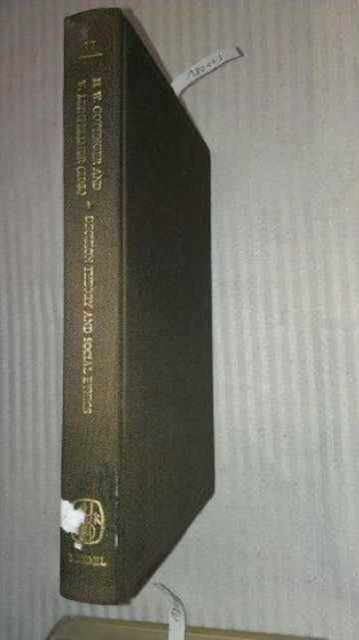
Bedankt voor het vertrouwen het afgelopen jaar! Om jou te bedanken bieden we GRATIS verzending (in België) aan op alles gedurende de hele maand januari.
- Afhalen na 1 uur in een winkel met voorraad
- In januari gratis thuislevering in België
- Ruim aanbod met 7 miljoen producten
Bedankt voor het vertrouwen het afgelopen jaar! Om jou te bedanken bieden we GRATIS verzending (in België) aan op alles gedurende de hele maand januari.
- Afhalen na 1 uur in een winkel met voorraad
- In januari gratis thuislevering in België
- Ruim aanbod met 7 miljoen producten
Zoeken
Decision Theory and Social Ethics
Issues in Social Choice
€ 106,45
+ 212 punten
Omschrijving
Ethics, as one of the most respectable disciplines of philosophy, has undergone a drastic and revolutionary change in recent time. There are three main trends of this development. The first trend can be described as a tendency towards a rigorous formal and analytical language. This means simply that ethics has created beside its own formalized set- theoretical language a variety of new formalized, logical and mathemati- cal methods and concepts. Thus ethics has become a formalized meta- or epidiscipline which is going to replace the traditional concepts, principles and ethical methods in the realm of social sciences. It is clear that a formalized form of ethics can be used more easily in social, economic and political theories if there are ethical conflicts to be solved. This first trend can be regarded as a conditio sine qua non for application in, and imposing ethical solutions on, social scientific theories. The second trend may be characterized as an association- or unification-tendency of a formalized and analytical ethics with decision theory. Decision theory as a new interdiscipline of social sciences is actually an assemblage of a variety of subtheories such as value-utility theory, game theory, collective decision theory, etc. Harsanyi has called this complex of subtheories a general theory of human behavior. Analytical or formal ethics is actually using this general theory of human behavior as a vehicle simply because this theory deals from the beginning with conflict solution, i. e.
Specificaties
Betrokkenen
- Uitgeverij:
Inhoud
- Aantal bladzijden:
- 351
- Taal:
- Engels
- Reeks:
- Reeksnummer:
- nr. 17
Eigenschappen
- Productcode (EAN):
- 9789027708878
- Verschijningsdatum:
- 30/09/1978
- Uitvoering:
- Hardcover
- Formaat:
- Genaaid
- Gewicht:
- 639 g

Alleen bij Standaard Boekhandel
+ 212 punten op je klantenkaart van Standaard Boekhandel
Beoordelingen
We publiceren alleen reviews die voldoen aan de voorwaarden voor reviews. Bekijk onze voorwaarden voor reviews.








